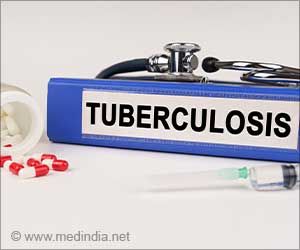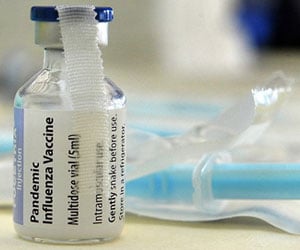
Associations of Plasma Omega-3 Fatty Acids With Progression and Survival in Pulmonary Fibrosis
Go to source). Pulmonary researchers at the University of Virginia in the US looked at the association between blood plasma levels of omega-3 fatty acids -- the heart-healthy fats found in foods such as salmon and flaxseeds -- and the progression of pulmonary fibrosis and how long patients could go without needing a transplant. In the study, the researchers found that higher levels of omega-3 were associated with better lung function and longer transplant-free survival.
‘Incorporating healthy fats from nuts and fish into the diet may slow the progression of pulmonary fibrosis, potentially delaying the need for lung transplants.
#healthyfats, #nuts, #fish, #pulmonaryfibrosis
’
Tweet it Now
"We found that higher levels of omega-3 fatty acids in the blood, which reflects several weeks of dietary intake, were linked to better lung function and longer survival," said researcher John Kim, a pulmonary and critical care expert at the University of Virginia School of Medicine. "Our findings suggest omega-3 fatty acids might be a targetable risk factor in pulmonary fibrosis," he added.
Omega-3 fatty acids have already been linked to various health benefits. Studies have suggested, for example, that they may lower the risk of heart disease, stroke-causing blood clots, breast cancer and other cancers, Alzheimer's disease, and dementia.
The team wanted to determine if omega-3s could play a protective role in interstitial lung disease, a group of chronic lung diseases that can lead to pulmonary fibrosis.
Delaying Lung Transplants in Pulmonary Fibrosis Patients
They reviewed information on more than 300 people with interstitial lung disease. Most were men (pulmonary fibrosis is more common in men than women), and most suffered from "idiopathic" pulmonary fibrosis, one of the conditions that fall under the banner of interstitial lung disease.The researchers found that higher levels of omega-3 fatty acids in the blood plasma were associated with better ability to exchange carbon dioxide and longer survival without needing a lung transplant.
Advertisement
"Higher levels of omega-3 fatty acids were predictive of better clinical outcomes in pulmonary fibrosis," Kim said.
Advertisement
The doctors called for clinical trials and more mechanistic studies to obtain additional insights and determine if omega-3 fatty acid drugs or dietary changes could improve patient outcomes.
"We need further research to determine if there are specific omega-3 fatty acids that may be beneficial and, if so, what are their underlying mechanisms," Kim said.
"Similar to other chronic diseases, we hope to determine whether nutrition-related interventions can have a positive impact on pulmonary fibrosis."
Reference:
- Associations of Plasma Omega-3 Fatty Acids With Progression and Survival in Pulmonary Fibrosis - (https://www.sciencedirect.com/science/article/abs/pii/S0012369223056453?via%3Dihub)
Source-IANS














